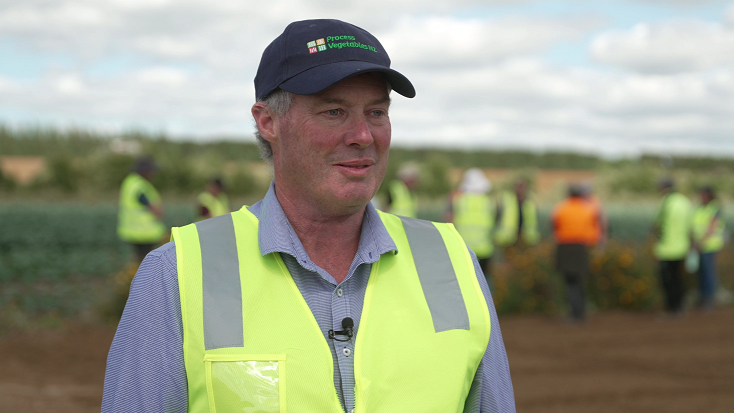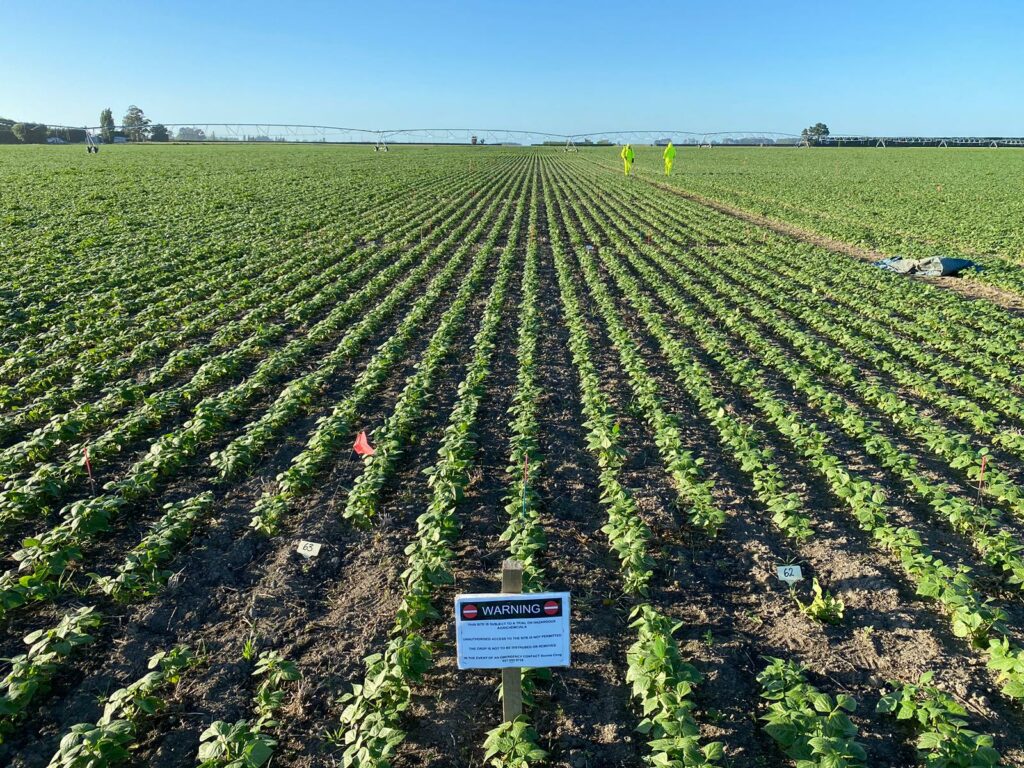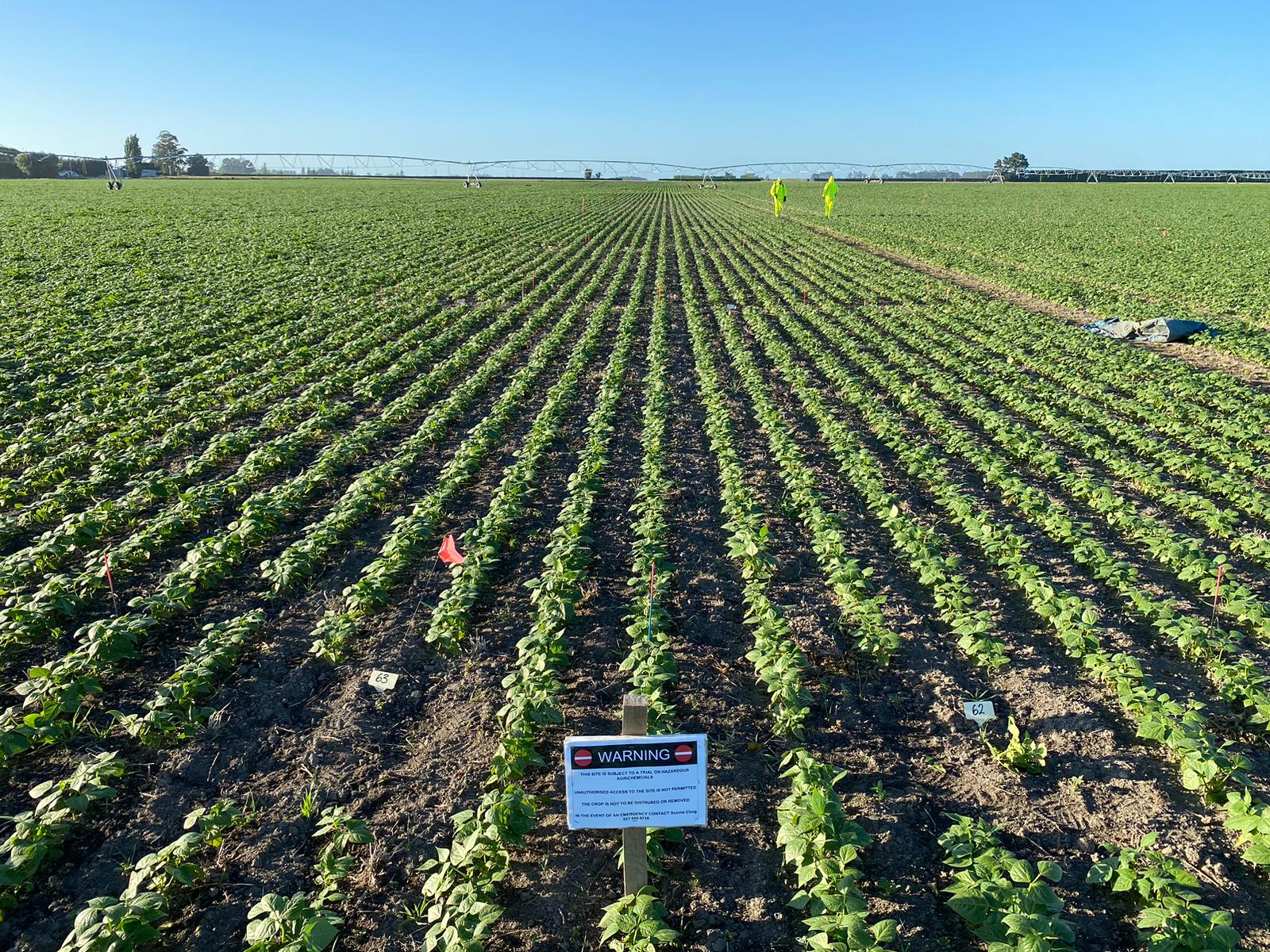Sharing results and research through A Lighter Touch has the potential to provide programme partners and their growers with a short cut to finding crop protection solutions.
That’s the view of Process Vegetables chair David Hadfield, who is also the product group’s representative on the A Lighter Touch Industry Stakeholder Advisory Group.
David says a key benefit of being a partner in A Lighter Touch (ALT) is the ability to learn from other product groups.
“I’m really interested in what kiwifruit is doing around the screening of organic compounds. Some of what they find may not be useful for what they’re looking for in terms of PSA, but it may control other diseases out there. And similarly, work happening around botrytis in grapes and boysenberries could also produce relevant information.
“It has the potential to short cut what we need to look at. They will have figured out some products that work, and we can try those products, rather than a long list of 20 potential things that are out there.”
David says the collaboration that the programme enables is resulting in information being shared between the partner product groups at a much earlier stage that it would be normally.

Process Vegetables NZ chair David Hadfield
“Usually we’d end up waiting for the final report to come out and we’d be reading it two years after the work had been done, whereas with A Lighter Touch we’re getting that same reporting six months after the trials are finished. It means faster progress for everyone.”
For Process Vegetables, there was already a history of working with other product groups, before A Lighter Touch, with process vegetable growers also commonly being growers of arable crops, potatoes, onions, and fresh vegetables, as well as farming livestock.
“When A Lighter Touch came along, we saw it as opportunity to work wider than we were already. Fruit crops have similar issues to arable and vegetable growers, they even have some of the same diseases, they just deal with them differently.
“There’s a combination of sharing knowledge, both cultural knowledge around grower practice, as well as research and crop protection solutions, and looking for those cross-overs where we can learn from each other.”
The primary focus of Process Vegetable’s project with ALT has been in seeking biological products to control two soilborne diseases – fusarium in peas and sclerotinia in beans.

Test products are applied in the dwarf bean trial. Credit Plant and Food Research.
With about 80% of New Zealand’s process vegetable produce being exported, market requirements have driven the focus on finding new biological products.
With export markets having different requirements in terms of the products and the Maximum Residue Levels (MRLs) they accept, it would be easier for processors if New Zealand growers were using crop protection products that meet every countries requirements.
“As a processor, you have peas being harvested from two or three farms at once, and then going into storage, then coming out later in the year for packaging. You have some lines going to Japan, and others going to Australia, or being sold domestically in New Zealand. There’s a lot to keep track of.
“It’s much easier to have crop protection products that fit the bill for everyone, than to separate all of your supply for all of your different markets,” David says.
The biologicals work Process Vegetables has underway within A Lighter Touch has just completed its second season of trials. It has involved growers, processors, scientists at Plant and Food Research, and expertise from other grower groups such as the Foundation of Arable Research (FAR).
The project has attracted interest from other ALT product groups, including the New Zealand Buttercup Squash Council and Vegetables New Zealand, which have selected products showing efficacy in the process vegetables project to use in trials they have underway.
With two years remaining of the seven-year term of A Lighter Touch, David is keen to see the programme continue in some form.
“We’re demonstrating to government that industry can work together at this scale, that we can all sit around the table with differences and common points, and responsibly spend the money for the benefit of our growers, and the New Zealand economy.
“There’s always going to be a new pest or disease or issue we have to deal with, and A Lighter Touch provides a model to move forward with as we approach the next challenge.”
